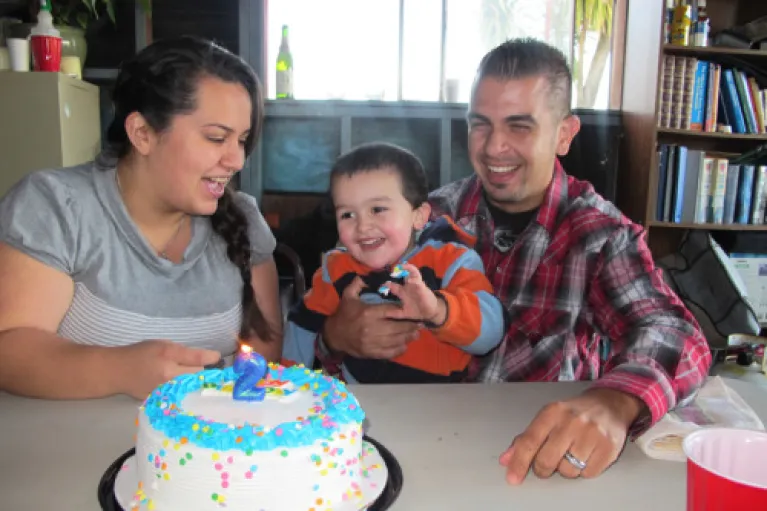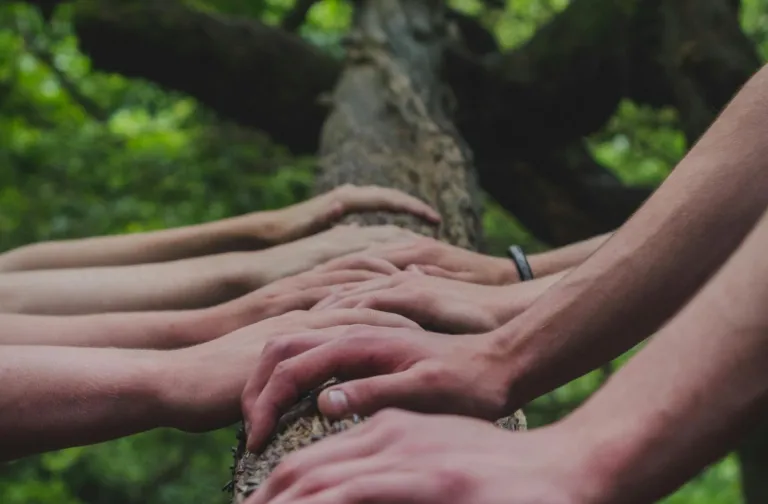Guaranteed income of $1,000 a month changed the lives of Marin moms and their families
Posted on July 05, 2023
Share This Page
Jun 27, 2023
A couple of years ago, I heard about the launch of a fascinating program in Marin. A group of 125 low-income moms would receive $1,000 a month for two years to spend on whatever they wanted. No strings attached.
I opened my calendar, flipped forward 24 months and made a note to call the organizer in May 2023, when the program was scheduled to end. That’s how I recently connected with Barbara Clifton Zarate, the director for economic opportunity at the Marin Community Foundation, to learn more about MOMentum, the clever name given to the initiative.
Zarate has managed MOMentum since its inception. Actually, she’s still overseeing it today because the successful program has been extended for another year.
The idea to give moms $1,000 a month was born from a 2018 study that examined inequities in Marin County. During that research, the Marin Community Foundation engaged with moms to better understand their journeys towards self-sufficiency and the challenges they experience, Zarate explained.
“The moms told us, ‘We don’t need another program that tells us how to live our lives,’” Zarate said. “‘We don’t need you to teach us how to balance our checkbooks. We know how to do that; there’s just no money in there.’ Basically, the moms said, ‘Just give us money.’ And so, they spoke, and we listened.”
When establishing the criteria for moms to enter the privately funded MOMentum program, Zarate said they looked at who is struggling the most in the county. The data showed that it was low-income moms of color. With the simple parameters set, the project participants were selected. The moms came from zip codes all over the county, although families in Marin City, San Rafael’s Canal neighborhood, Novato and West Marin were found to suffer the greatest inequities and disparities.
The MOMentum model gives the moms autonomy in how to spend the money. In addition, the program offers support to them in other ways. For example, they partnered with Redwood Credit Union, which held a series on financial literacy for the moms.
“So often we have a narrative in this country that people with low income need some sort of mandate on what they do with their money,” Zarate said. “That’s an illusion.
Zarate and her team check in often with the participants, and their preliminary research demonstrates that indeed, “Mother knows best.”
While $1,000 a month may be a drop in the bucket to the majority of residents in Marin, where the median annual income for a four-person household is $175,000, the low-income moms in MOMentum say the money has changed their lives.
The moms report they are healthier and experience far less stress. The money enabled some to drop one of their multiple jobs, allowing them to spend quality time with their families. Others enrolled in college. Credit scores have drastically improved. Quite a few moms shared their windfall with neighbors in need. A mom living with roommates was able to move her family into their own home.
Claudia Muralles, 44, is one of the 125 moms in MOMentum. Having a child at a young age and dropping out of high school set Muralles on a trajectory that left her struggling financially. Today, two of Muralles’ four children still live at home with her in Novato. The $1,000 a month has provided the basics, plus a few special experiences for her family.
“I’m not waiting for the next paycheck because we ran out of money,” Muralles said. “I can tell my girls, ‘Yeah, we can go out for ice cream.’ Our lives are not extremely luxurious, but the extra money—definitely everyday—it gives peace of mind.”
Muralles is preparing to graduate from college and looks forward to buying a home. Why not? During her time in the program, she increased her credit score from 400 to 700.
Another mom, Jennifer Barron, 48, has three of her eight children living in her Novato home. The rest have left the nest. Every penny of the money that she’s received from MOMentum has been spent wisely, and mostly on her children, according to Barron.
“Our fridge is full,” Barron said. “Gas is so expensive, but I have gas in the car to drive back and forth to school. The kids have haircuts and clothes on their backs.”
The MOMentum program, while extended through May 2024, will begin tapering down the amount given to the moms—$1,000 a month for the first three months, decreasing by $250 each successive quarter.
I thought Barron might be terrified about being cut off from the funding. She’s not. Two years ago, Barron received her high school diploma and is now enrolled in community college. She’s confident that she’ll be able to get a good-paying job after she obtains a bachelor’s degree.
MOMentum is a test of the guaranteed income concept, which is also referred to as universal basic income. Andrew Yang, who ran for president in 2020, made it part of his platform to give $1,000 a month to every American over the age of 18.
Providing unconditional cash assistance to citizens isn’t a new idea. Napoleon Bonaparte talked about it. So did Thomas Paine, one of America’s founding fathers. Martin Luther King, Jr. was also a proponent. In his final book, Where Do We Go From Here?, King wrote, “The solution to poverty is to abolish it directly by a now widely discussed measure: the guaranteed income.”
Basic income programs can target a specific population, like MOMentum does, or they can be broad-based, as in Yang’s plan. There are now dozens of pilot programs in the United States. But other countries—many for years—have successfully used guaranteed income to increase the quality of life for its citizens.
Since 2017, the Stanford Basic Income Lab at Stanford University has followed pilot programs and researched the aspects of basic income, including politics, economics and outcomes. Sean Kline, Stanford Basic Income Lab’s associate director, said the programs are working; however, there are those who oppose the concept.
Of course, some people believe everyone should “pull themselves up by their own bootstraps,” despite social inequities. Reasonable objections also exist, according to Kline. Some question whether basic income is the best single investment to make with public funds, rather than spending it on programs such as public health or education. But Kline doesn’t necessarily agree with those assessments.
“We have a tremendous amount of evidence, and a growing amount of evidence, that unconditional cash is a very, very good investment,” Kline said. “Sadly, I think we’ve worked ourselves into this scarcity mindset where there’s finite dollars, and we can spend it on only a few people in a few programs. Yet our wealthy country spends huge amounts of money on all kinds of things. We need to recognize that it’s more a question of political will as to how we spend our funds. Then we can begin to normalize the notion of basic income as a policy option.”
Based on Muralles’ experience in the MOMentum program, she has no doubts that guaranteed income programs should be adopted by the government.
“I became a parent when I was 17 and dropped out of high school,” Muralles said. “Now, I’m on the right path to becoming a contributor because I was given the right tools and opportunity. Without programs like this, people will continue to be part of the poverty statistics.”






